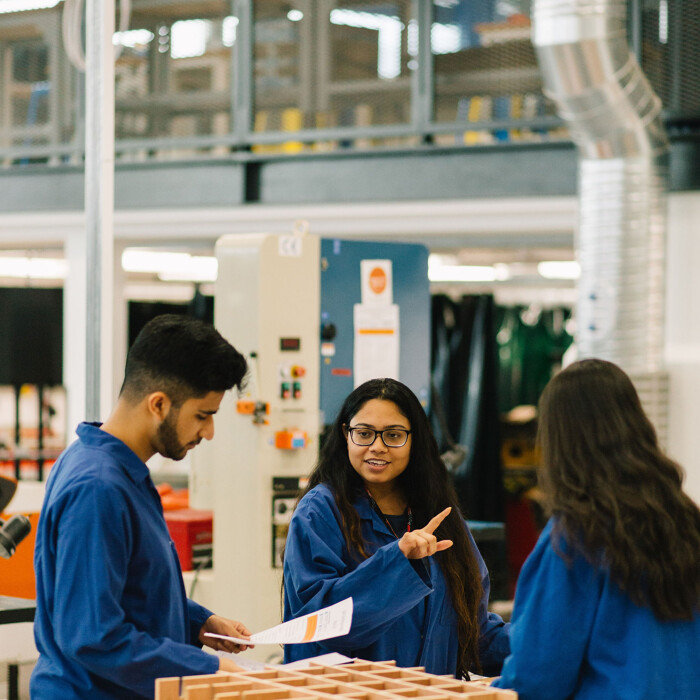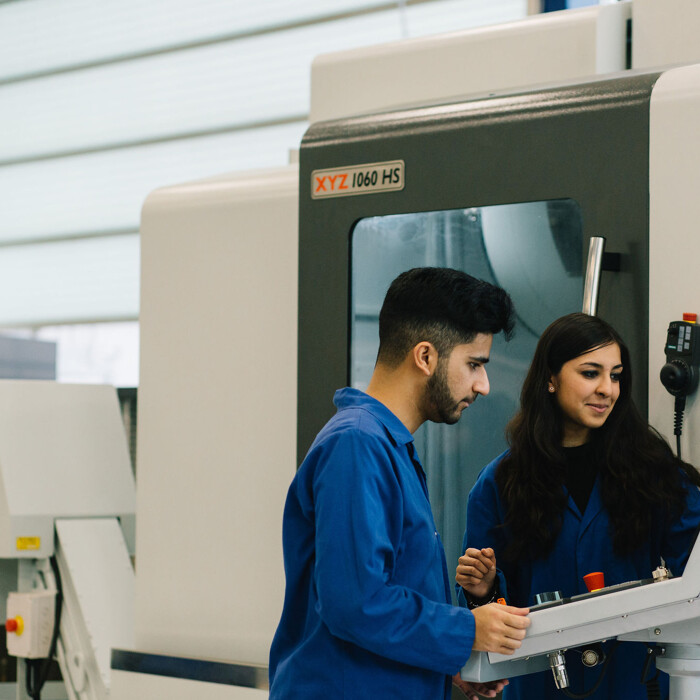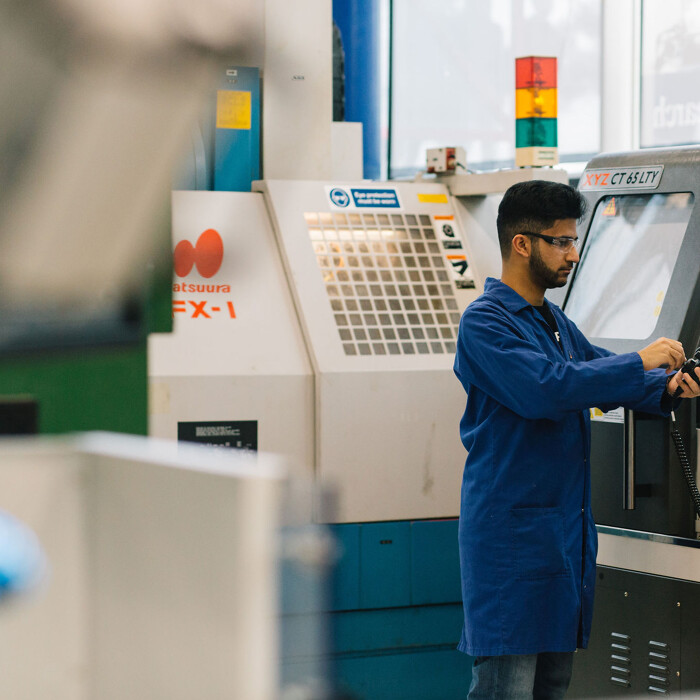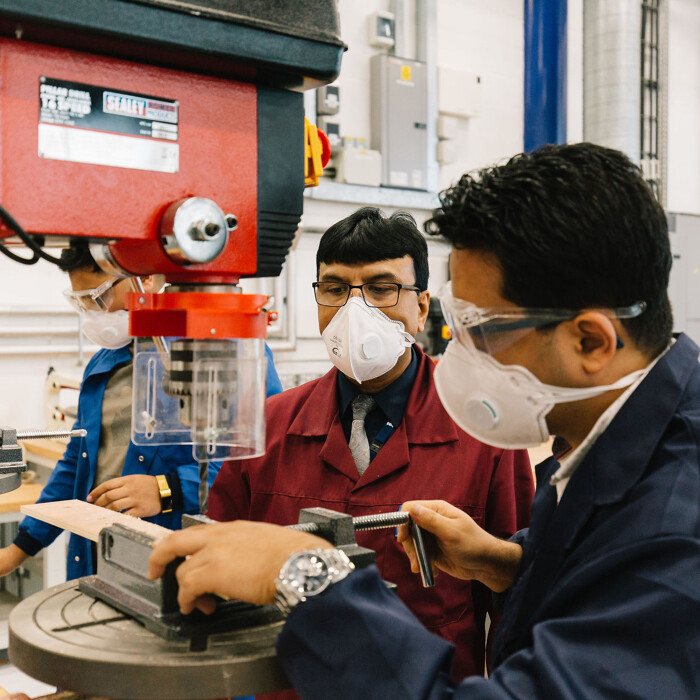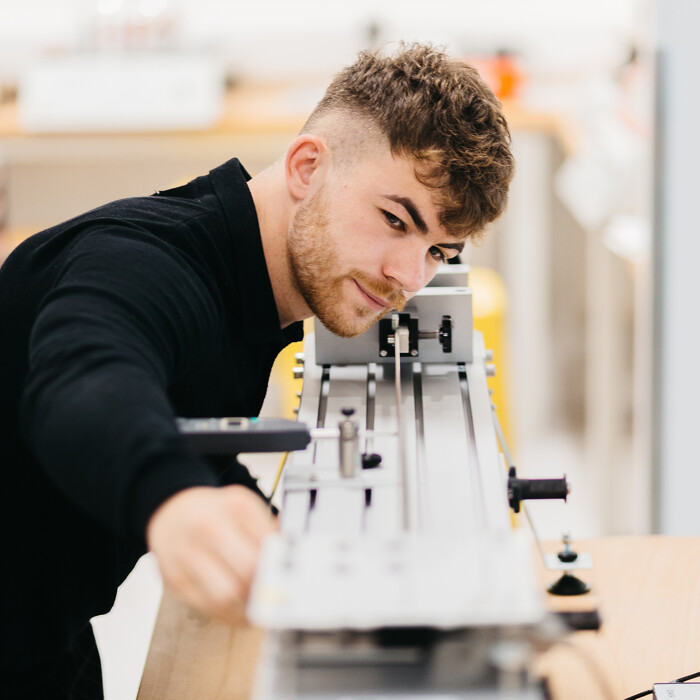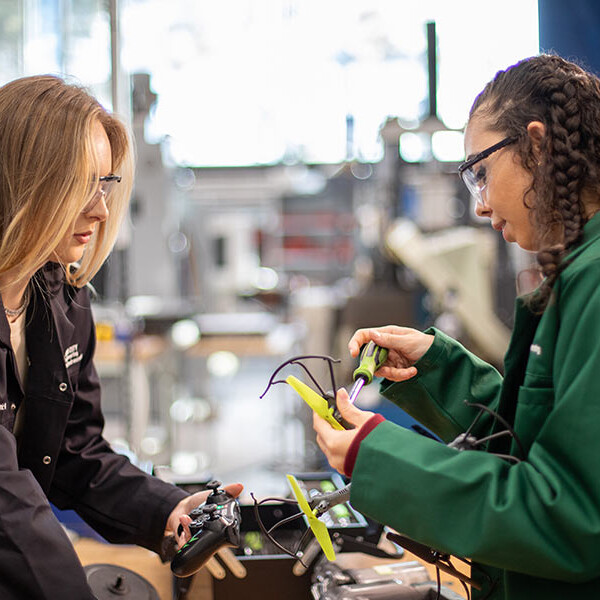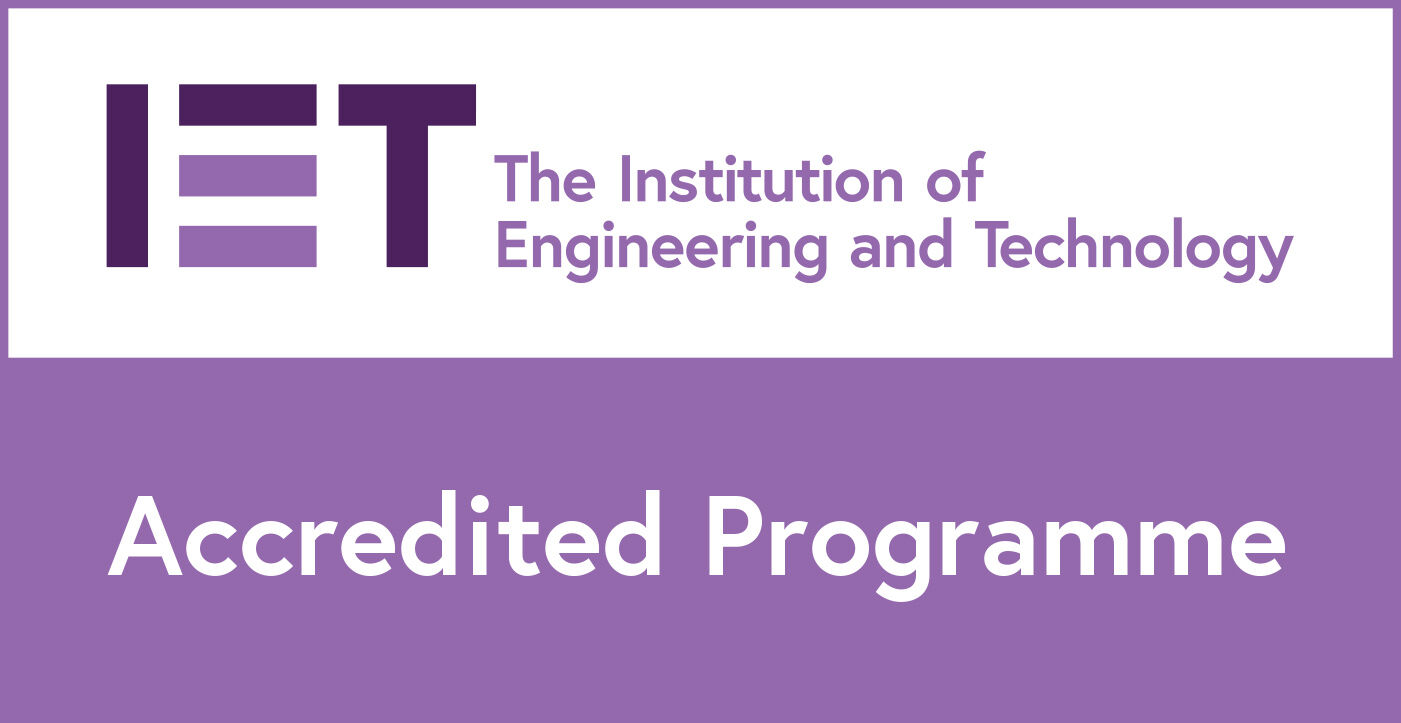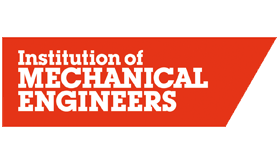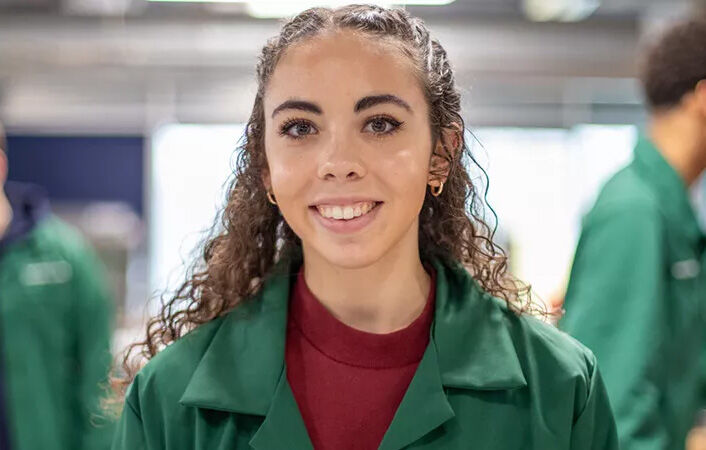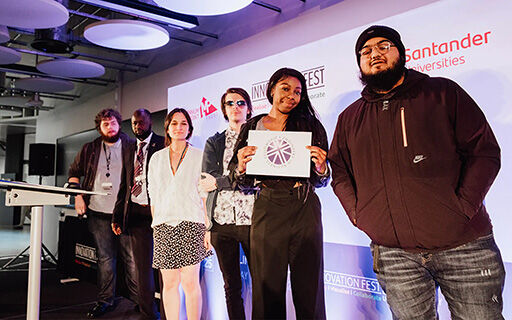
Mechanical Engineering - BEng (Hons)
Currently viewing course to start in 2025/26 Entry.
Our BEng (Hons) Mechanical Engineering will develop you as a skilled engineer capable of undertaking mechanical engineering tasks within and across organisations. The course focuses on the importance of sustainable futures and the Government's STEM agenda, to give you the knowledge and attributes you will need to thrive in this ever-changing industry....
- Level Undergraduate
- Study mode Full Time
- Award BEng (Hons)
- Start date September 2025
- Fees View course fees
- Subject
- Location City Centre
This course is:
Available with Professional Placement year
Open to International Students
Overview
In today's fast paced world, technology is advancing at an unprecedented rate. From cutting edge developments in artificial intelligence to sustainable energy solutions, engineering at BCU is the forefront of these innovations. Our campus is situated in the heart of the city, providing you with the perfect environment to immerse yourself in the dynamic field of engineering.
The course is designed to equip you with the skills and knowledge needed to tackle real world challenges. As a BCU engineering student, you'll be positioned to make an impact in various sectors, from civil and automotive to renewable energy and beyond. The demand for skilled engineers has never been higher, and the opportunities are boundless.
Companies are actively seeking graduates with practical skills and critical thinking that is taught on this course. We also have strong ties with industry partners, providing you with invaluable networking opportunities. You'll get to access BCU's cutting edge facilities and also benefit from using the specialist equipment over at the GBS IoT.
This is where your engineering journey begins. Embrace the possibilities and engineer a future that makes a difference.
Our BEng (Hons) Mechanical Engineering will develop you as a skilled engineer capable of undertaking mechanical engineering tasks within and across organisations. The course focuses on the importance of sustainable futures and the Government's STEM agenda, to give you the knowledge and attributes you will need to thrive in this ever-changing industry.
You will work on industry-standard analytical tools, develop your design skills, as well as exploring a wide range of facilities, such as Engineering Science and Industry 4.0 laboratories, and industry standard Selective Laser Melting equipment (metal 3D printer).
What's covered in this course?
Our engineering courses focus on project-based activities, giving you lots of opportunity to work in teams on projects from design to implementation. This will give you practical experience of applying engineering science to real world problems, working in multidisciplinary teams to develop your interpersonal skills, and prepare you for a key aspect of modern engineering practice. Problem-solving and project management are key skills for an engineer, and our focus on practical experience will help to improve your skills in these highly sought-after areas.
During your studies, you will use the latest tools and technologies, developing new skills at an advanced level. The course will encourage your creative thinking and develop your engineering leadership skills. Building on a foundation of the generic skills required by tomorrow’s engineers, you will also explore the wider context of engineering, as well as the application of advanced engineering principles to solve problems through research and development. You’ll engage in independent study and systematic enquiry at an advanced level and take responsibility for the conclusions drawn from it.
You will have lots of opportunity to apply industry-standard modelling and simulation techniques to the analysis, specification and design of mechanical engineering systems so that you are able to apply your knowledge and theory to a practical situation. In this way, we make sure you are ready to step straight into employment.
Progression to MEng Mechanical Engineering
This course offers the option to progress to the MEng Mechanical Engineering. This allows you to undertake an additional year of study at postgraduate level, following successful completion of your BEng course. If you choose to progress to an MEng, you will be able to apply to transfer during your third year of study.
Professional Placement Year
This course offers an optional professional placement year. This allows you to spend a whole year with an employer, following successful completion of your second year, and is a great way to find out more about your chosen career. Some students even return to the same employers after completing their studies.
If you choose to pursue a placement year, you will need to find a suitable placement to complement your chosen area of study. You will be able to draw on the University’s extensive network of local, regional, and national employers, and the support of our Careers teams. If you are able to secure a placement, you can request to be transferred to the placement version of the course.
Please note that fees are payable during your placement year, equivalent to 20% of the total full-time course fee for that year.
Accredited By
This course is accredited by:
I decided to study at Birmingham City University because while I was in full time employment this course offered everything that I needed part time and covered all the modules that I needed to progress in my career role.
The course offered all the different practical elements as well as the theoretical elements for power generation and design – the subjects that I enjoyed and wanted to progress on to in my career. Katja Wotton Srbljanin
Why Choose Us?
- Accredited course - This course is accredited by the Institution of Engineering and Technology (IET) and Technology (IET) and Institution of Mechanical Engineers (IMechE).
- Industrial placement year option - Gain desirable employability skills and work experience with the option of an industrial placement year, that will take place between your second and final year of the course.
- Formula Student events at Silverstone - We are one of the select UK universities with access to take part in our international Institution of Mechanical Engineers (IMechE) Formula Student event at Silverstone.
- State-of-the-art facilities - You will be based at our Millennium Point campus in City Centre, where our facilities have undergone a £6.5 million investment with a new maker area, engineering labs/equipment and IT equipment to provide you with the very best learning experience. You will also use our industry-standard equipment and resources, including rapid prototyping, laser-cutting and CNC machining.
- £1.1 million investment in new facilities from the IoT – The Institute of Technology (IoT) has invested in brand-new equipment and facilities, including an Electric Vehicle (EV) Test Rig, an Additive Manufacturing Machine (3D printer) and a material testing-split zone furnace - all industry grade technology that will advance your skills, making you more employable.
- Employable graduates - Our graduates have progressed into roles with leading companies such as Jaguar Land Rover, Morgan Motors, GKN, Bentley, Mercedes, Rolls-Royce and JCB.
Open Days
Join us for an Open Day where you'll be able to learn about this course in detail, chat to students, explore our campus and tour accommodation. Booking isn't open for this event yet, register your interest and we'll let you know as soon as booking goes live.
Next Open Day: 28 June 2025
Entry Requirements
These entry requirements apply for entry in 2025/26.
All required qualifications/grades must have been achieved and evidenced at the earliest opportunity after accepting an offer to help confirm admission and allow for on-time enrolment. This can also include other requirements, like a fee status form and relevant documents. Applicants can track their application and outstanding information requests through their BCU mySRS account.
Essential requirements
- Standard offer: 112 UCAS Tariff points. Learn more about UCAS Tariff points.
- Accelerate offer: 80 UCAS Tariff points. Find out more about BCU Accelerate.
If you have a qualification that is not listed, please contact us.
Fees & How to Apply
UK students
Annual and modular tuition fees shown are applicable to the first year of study. The University reserves the right to increase fees for subsequent years of study in line with increases in inflation (capped at 5%) or to reflect changes in Government funding policies or changes agreed by Parliament. View fees for continuing students.
Award: BEng (Hons)
Starting: Sep 2025
- Mode
- Duration
- Fees
- Full Time
- 3 years
- £9,535 in 2025/26 ✱ Important note for this price
- Apply via UCAS
(↩Back to price) * The Government is proposing to increase the cap on full-time regulated tuition fees to £9,535 for 2025/26 and the University is planning on increasing fees to that maximum level once legislation is enacted. Part-time fees are charged pro-rata, where applicable.
International students
Annual and modular tuition fees shown are applicable to the first year of study. The University reserves the right to increase fees for subsequent years of study in line with increases in inflation (capped at 5%) or to reflect changes in Government funding policies or changes agreed by Parliament. View fees for continuing students.
Award: BEng (Hons)
Starting: Sep 2025
- Mode
- Duration
- Fees
- Full Time
- 3 years
- £17,690 in 2025/26
Part-time study
The part-time route on this course is available for advanced entry, from year 3 onwards. If you already hold – or are working towards – an HNC or HND in a related subject, you may be eligible to study this course part-time. To find out more, visit our part-time study webpages.
Guidance for International students
There are three ways to apply:
1) Direct to the University
You will need to complete our International Application Form and Equal Opportunities Form, and submit them together with scan copies of your original academic transcripts and certificates.
2) Through a country representative
Our in-country representatives can help you make your application and apply for a visa. They can also offer advice on travel, living in the UK and studying abroad.
3) Through UCAS
If you are applying for an undergraduate degree or a Higher National Diploma (HND), you can apply through the UK’s Universities and Colleges Admissions Service (UCAS).
You can request a printed form from your school or nearest British Council office. You will be charged for applying through UCAS. Birmingham City University’s UCAS code is B25 BCITY.
Personal statement
UK / EU students are required to submit a personal statement as part of their application for this course.*
The personal statement gives you a crucial opportunity to say why you’re applying and why the institution should accept you.
Here are the key areas you’ll need to address:
- Course choice - Why does this course appeal? What areas are of particular interest?
- Career plans - If you have a specific career in mind, say how your chosen course will help you pursue this goal.
- Work experience - Mention any work that is relevant to your subject, highlighting the skills and experience gained.
- School or college experience - Highlight skills gained at school/college, eg summer schools or mentoring activities.
- Non-accredited skills or achievement - eg Duke of Edinburgh Award, Young Enterprise scheme.
You should also mention your future plans – if you’re planning to take a year out, don't forget to give your reasons. Talk about any subjects you’re studying that don’t have a formal assessment and any sponsorships or placements you’ve applied for. And don't be scared to add in details about your social, sports or leisure interests.
Worried about Personal Statements?
If you've got no idea where to start or just want to check you're on the right track, we’ve got expert advice and real examples from our students to help you nail your personal statement. You can even download our ultimate personal statement guide for free.
*Non-EU students are not required to submit a personal statement when applying for this course.
Course in Depth
First Year
In order to complete this programme you must successfully complete all the following CORE modules (totalling 120 credits):
The module aims to provide the underpinning knowledge and problem solving skills in engineering science to enable you to progress to the next module in the theme, Engineering Principles II, and then on to the second year of a range of engineering degrees.
As the practical aspects of engineering science are delivered in another theme of the common first year, the Engineering Principles modules concentrate on the theoretical aspects. The subject material will be delivered in two coherent streams one of which contains predominantly mechanical science and the other contains predominantly electrical science.
The module aims to provide the professional skills needed to enable you to progress to the next stage of the practical theme, onto your next module: Integrated Engineering Project, and then into the second year of an engineering degree.
The subject material will be delivered in two core streams: a PC-based stream, which will include the use of software to support project planning, communication and analysis, and a project-space stream, where you have the opportunity to integrate learning from across all elements of the semester.
You will develop practical professional engineering skills; including skills required for conceiving, designing, implementing and operating (CDIO) engineering solutions.
This module will interact with modules in the other two themes in the first year, relying on the knowledge of mathematical techniques, and the theoretical underpinning of the engineering principles, design and professional skills.
Mathematics plays a key role in establishing and grounding the skills of an engineer, and the ability to communicate the ideas of engineering that are expected of an engineering graduates.
The primary aim of this module is to provide the fundamental mathematical knowledge and techniques needed in order to enable you to use and apply such mathematical techniques for the evaluation, analysis, modelling and solution of realistic engineering problems. Application of these data sets has to include their interpretation both to and from the mathematical language. In addition, this module will introduce students to mathematical modelling software package. This will be used to plot, annotate basic signals and write simple programs to compute mathematical problems.
This module will develop your ability to both work on and communicate engineering realities to a wider audience, at a professional standard.
The module aims to provide the underpinning knowledge and problem solving skills in engineering science to enable you to progress to the second year of a wide range of engineering degrees. As the practical aspects of engineering science are delivered in another theme of the common first year, the Engineering Principles modules concentrate on the theoretical aspects. The subject material will be delivered in two coherent streams one of which contains predominantly mechanical science and the other contains predominantly electrical science.
This module will focus on introducing and building on well-established techniques for mathematically modelling dynamic systems (systems of interest for engineering) for contextualised engineering applications. The module will include an introduction to sophisticated signal analysis technique, Fourier series which is used to transform time-domain signals into their frequency spectra. The module is structured to include a mixture of lectures, tutorials and PC-based laboratories. The lectures will formally introduce material, in tutorials students will work through questions with tutor. The PC laboratories will involve using mathematical modelling software packages to implement mathematical operations.
The module aims to provide the practical and professional skills to enable you to progress on to the second year of an engineering degree. As the theoretical aspects of physical science and maths are delivered in other themes of the first year, the Practical Skills modules concentrate on the practical aspects.
The subject material will be delivered in three coherent streams one of which contains predominantly mechanical and electrical laboratory exercises, a second PC-based stream will include use of software to support project planning, design, communication and analysis and the third, a project space where you have the opportunity to integrate learning from across all elements of the semester.
Second Year
In order to complete this programme you must successfully complete all the following CORE modules (totalling 120 credits):
The module aims to provide a basic understanding of thermodynamic and fluid mechanic concepts. The understanding of the transfer of energy within thermodynamic systems and the incurred losses is vital to improve efficiencies of such systems, especially in light of growing environmental concerns and increased economic cost.
The knowledge and understanding will be gained through a balanced mixture of lectures and tutorials, whereby the learning will be supported by experiments.
The module provides you with the opportunity to learn about design, sustainable development, teamwork and communication whilst contributing towards real international development projects.
You will also gain the ability to communicate design ideas and practical details, to evaluate and apply both tangible and subjective feedback, and to conceive, design, implement and operate practical solutions to design opportunities.
It is anticipated that the project vehicle for this module will be the Engineers without Borders Design for People Challenge.
The module introduces the mathematical concepts such as transform calculus and matrix theory used to solve systems of first and second order differential equations underpinning the engineering disciplines undertaken within the Faculty.
This provides you with the capability of modelling systems using both the transfer function and statespace paradigms. In particular, you will be able to model linear systems in continuous and discrete time as well as by frequency response methods.
Teaching and assessment will comprise not only traditional lectures and tutorials but also provide training in industry standard software for problem solving within coursework assessment.
An interdisciplinary module, you will work with students from all fields of engineering to develop skills in engineering leadership and experience creating a purposeful vision and delivering on that vision. This will set the professional skills for business in context by combining your technical course-specific knowledge with professional skills. It is proposed that the vehicle to deliver this will be the biomimicry global design challenge.
The Mechanical Science module applies the principles of engineering, physics, and materials science to the design, analysis, manufacture, and maintenance of mechanical systems and components. It is a branch of engineering that enables you to design, produce, and operate machinery. In keeping with the programme philosophy the module encourages learning through the practical application of fundamental mechanical science principles to the analysis and solution real world problems.
The course is delivered by way of an introductory lecture to a particular real world problem, such as vibration, and the underlying mechanical science principles used to tackle the problem. You will then engage in interactive tutorials where you will practice applying underlying mechanical science principles to real world problems.
This module develops your research skills, idea generation techniques, and ability to create CAD models and manufactured components.
You will also gain the ability to communicate design ideas and practical details, to evaluate and apply both tangible and subjective feedback, and to conceive, design, implement and operate practical solutions to design opportunities.
Professional Placement (Optional)
In order to qualify for the award of BEng (Hons)/MEng Mechanical Engineering with Professional Placement Year you must successfully complete the following module.
This module is designed to provide you with the opportunity to undertake a credit bearing, 40- week Professional Placement as an integral part of your Undergraduate Degree.
The purpose of the Professional Placement is to improve your employability skills which will, through the placement experience, allow you to evidence your professional skills, attitudes and behaviours at the point of entry to the postgraduate job market. Furthermore, by completing the Professional Placement, you will be able to develop and enhance your understanding of the professional work environment, relevant to your chosen field of study, and reflect critically on your own professional skills development within the workplace.
Final Year (BEng)
In order to complete this programme you must successfully complete all the following CORE modules (totalling 120 credits):
In the development cycle of new and existing components, processes and systems the use of computer analysis has a strong role to play. Reduced lead times can mean faster arrival at the market than competitors and therefore gaining an advantage. Engineers are at the centre of the development process and therefore require a good understanding of the key aspects of computer aided engineering (CAE).
This module will expose you to key aspects of computer aided engineering with regards to the fundamental principles behind the screen, the selection of appropriate boundary conditions and methods for a solution, as well as raising awareness of the limitations of CAE.
The module introduces you to the mathematical tools underpinning the analysis, modelling and design of complex vibrating systems and mechanisms as well as the software tools within an appropriate simulation environment used for their solution. Industry standard software will also be used for the design of dynamical control systems using both time and frequency domain techniques.
Teaching and assessment will comprise not only traditional lectures/tutorials, but also use of industry standard software for the purposes of mathematical modelling, all of which are assessed by examination.
Mechanical engineers nowadays solve problems of high and multidisciplinary complexity. Although computational solutions generally lead to reliable results, the engineer should always attempt to validate the findings by alternative methods. This requires a thorough understanding of the underlying problems, but also the approach of reasonable simplification of complex systems without compromising validity.
The dependency of the current economy of fossil fuels as source of power requires a shift in thinking by engineers and companies to design and develop more efficient machines, processes and systems. The module therefore aims to provide you with the knowledge and understanding required to analyse thermodynamic systems concerned with conversion processes between heat and work. In addition the issues and limitations of the energy generation process play also a vital part and how energy can be recovered from processes to improve the overall efficiency.
The module follows the Mechanical Engineering programme philosophy of developing your intellectual and practical competence in the thermodynamic, power generation and energy conversion aspects of mechanical engineering. Formal lectures, tutorials, hands-on experience in labs and solving of problem based scenarios will enhance the learning process.
The purpose of the module is to enable you to undertake a sustained, in-depth and research-informed project exploring an area that is of personal interest to you. In agreement with your supervisor, you will decide upon your topic which will take the form of a practical outcome (artefact) with accompanying contextual material. The main consideration when choosing your topic is that it must be aligned to the programme you are studying, and you should consider the relevance of this topic to your future academic or professional development.
At this level, you will be expected to work independently but you will receive additional one-to-one support from your supervisor, who will be familiar with your chosen topic area. As you progress on the module, extra support will be available and this may take the form of group seminars, workshops and online materials that will help to develop your project.
MEng
If you choose to continue onto the MEng, you will need to successfully complete all of the following CORE modules (totalling 120 credits):
The purpose of the module is to enable you to undertake a sustained, in-depth and research-informed group project exploring an area that is of personal interest to you. In agreement with your supervisor, your group will decide upon your topic which will take the form of a practical outcome (artefact) with accompanying contextual material. The main consideration when choosing your group’s topic is that it must be aligned to the programme you are studying, and you should consider the relevance of this topic to your future academic or professional development.
This module provides you with an awareness of advanced structural techniques used for study of deformable solids, a general knowledge of the techniques employed and skills to perform analysis for selected solid components and structures. It aims to provide you with the following: the skills and confidence to perform advanced analysis of solid components and structures; the knowledge of selected advanced analysis techniques employed on the more common components and structures; and an understanding of the behaviour of solids under two or three dimensional stress fields, and the limitations imposed by assumptions and boundary conditions.
The module utilises the mathematical concepts such as transform calculus and matrix theory used to model systems using both the transfer function and state-space paradigms. You will then be able to design controllers for linear systems using time and frequency response methods, in particular, pole placement techniques will be applied using both input-output and state-feedback approaches. These will then be extended to observer design and LQR optimization.
Teaching and assessment will comprise not only of traditional lectures and tutorials, but also the use of industry standard software for problem solving.
The Automotive and Mechanical Engineering programmes share the common philosophy of one which aims to provide engineers with a rigorous grounding in industrial standard design, analysis and simulation capability. This module is consistent with this approach since it directly includes content and resources that specifically help you meet these needs.
A principal aim of both programmes is to respond to the market need for engineers who are competent and skilled in the use of advanced computer modelling and simulation techniques. This module delivers against this aim, providing you with a thorough technology grounding supported by directly relevant design, simulation and analysis experiences.
This module provides you with the opportunity to learn about the Fundamentals of Thermofluids: the conservation laws and their application, viscosity and the constitutive equations, boundary layers, turbulence and thermofluid properties. Computational Fluid Dynamics. Overview of discretisation methods: FD, FE, FV etc. The finite volume method of discretisation. Newtonian and non-Newtonian flows, boundary layers, turbulence, compressible flows, flows with heat transfer. Validation of CFD.
Download course specification
Download nowImportant Course Accreditation Information*
Students completing an IET accredited degree are deemed to have met part or all of the academic requirements for registration as a Chartered or Incorporated Engineer and are in a strong position to move on to achieve professional engineering status after a period of initial professional development in industry.
BEng Accreditation Information
In order for you to achieve professional accreditation, you must have, on top of your academic qualifications, a minimum of 4 years relevant industrial engineering experience at the appropriate level.
Our current BEng courses are accredited at Partial CEng level, meaning that provided you have the relevant industrial experience, you may be eligible to apply for Incorporated Engineer Level.
Should you wish to apply for CEng Engineer level, there will be requirement for further learning at PG level, for example, an accredited MSc in the relevant subject. Our MSc courses are accredited at full CEng level.
MEng Accreditation Information
The following information applies to those who choose to progress on to the MEng.
The accredited MEng will meet, in full, the exemplifying academic benchmark requirements for registration as a Chartered Engineer. Accredited MEng graduates will be able to show that they have satisfied the educational base for CEng registration.
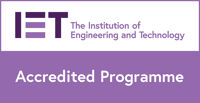
Institution of Engineering and Technology (IET)
CEng accredited by the Institution of Engineering and Technology (IET), fulfilling the educational requirements for Chartered Engineer when presented with an accredited MSc. In addition, the programme meets the educational requirements for registration as an Incorporated Engineer.
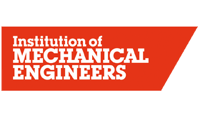
Institution of Mechanical Engineers (IMechE)
- The accredited BEng (Hons) will meet, in part, the exemplifying academic benchmark requirements for registration as a Chartered Engineer and Students will need to complete an approved format of further learning pursuant to the requirements of UK-SPEC.
- The accredited BEng (Hons) will also automatically meet in full, the exemplifying academic benchmark requirements for registration as an Incorporated Engineer (IEng).
Employability
There is a high demand for mechanical engineering graduates with the skills and knowledge provided by this course.
According to the Institution of Engineering and Technology (IET), there is a skills crisis in the UK engineering and technology sectors, with 87,000 more engineers needed each year for the next 10 years alone.
Through group work and project-based challenges, you will develop transferable and marketable skills and knowledge applicable to a variety of employment opportunities within the mechanical engineering and associated industries.
We will develop the skills, understandings and personal attributes that will help you stand out from the crowd when it comes to securing employment.
We will ensure you are professional, work-ready and enterprising, with a global outlook and the ability to solve problems creatively.
Placements
We aim to have you employer-ready by the time you graduate and as part of this commitment we encourage you to further enhance your career prospects by including an industrial placement in your course.
You will do your placement after the second year of study, which will extend the duration of your course to four years if you are studying on a full-time basis, and you’ll be supported throughout your time away.
Thanks to our excellent partnerships and strong relationships with industry, you could join the ranks of our students who have gained exceptionally high quality work experience at companies including Triumph , Cummins Ltd ., BMW, and Bosch.
Placements provide the workplace experience that many employers look for and give you an invaluable opportunity to develop your practical expertise, earn money and try out a potential career path.
My experience as a female Engineer working for Jaguar Land Rover
Alessandra, a Mechanical Engineering graduate, tells us about her experience as a female engineer working in the industry and how she adds perspective and value to any team, as well as how useful she found her course.
Innovation Fest
Innovation Fest is designed to foster entrepreneurship and support the development of our first-year students as future world-changers. The festival contributes to the knowledge economy, increasing students’ employability by providing genuine portfolio material.
Facilities & Staff
Our Facilities
Our state-of-the-art Engineering labs and workshops provide the perfect setting for practical work with modern-day teaching and learning facilities. We pride ourselves on equipping our students with the skill set that they need not only working on industry standard equipment, but having industrial links, which set them up perfectly for a career in engineering.
We have invested in industry-standard facilities to support the practice-based elements of our Engineering courses and give students as much practical learning as possible, to prepare for industry placements and job opportunities after graduation. Students have access to our facilities during classes, and can book out of class sessions with our specialist technicians.
We are a partner of the Greater Birmingham and Solihull Institute of Technology (GBSIoT) and have secured £1.1 million of government funding for investment in brand-new equipment and facilities. Funding of £808,000 from the Department for Education has supported our development of an Electric Vehicle (EV) Test Rig, an Additive Manufacturing Machine (3D printer) and a material testing-split zone furnace.
The IoT has enabled procurement of new technologies for material testing, electronics prototyping and production and 3D scanning to compliment computer aided design for manufacture.
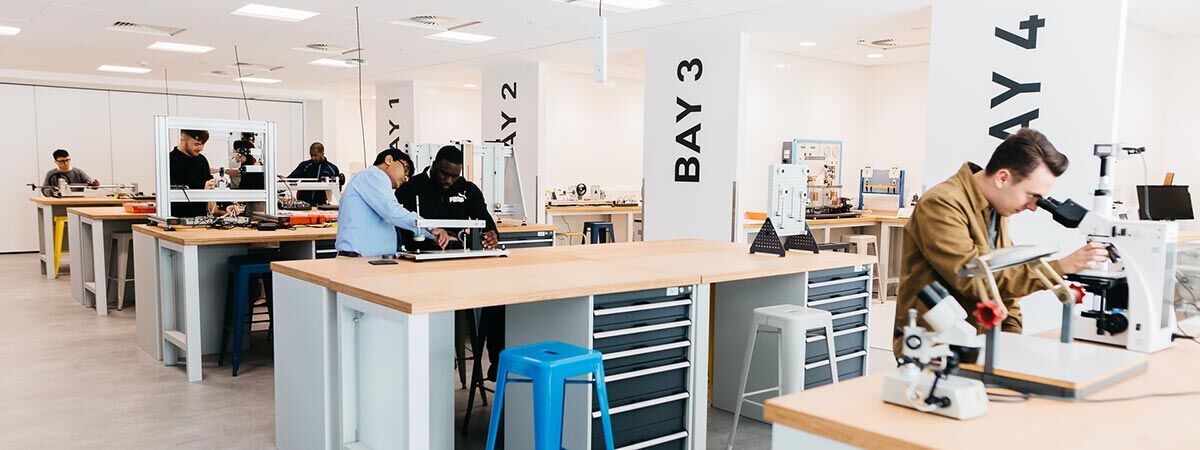
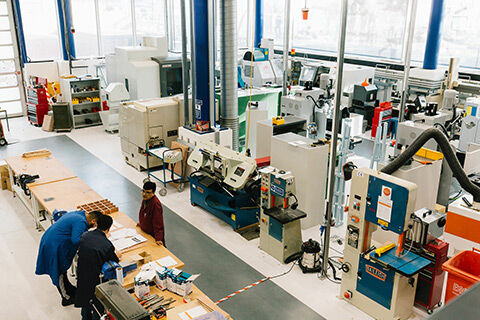
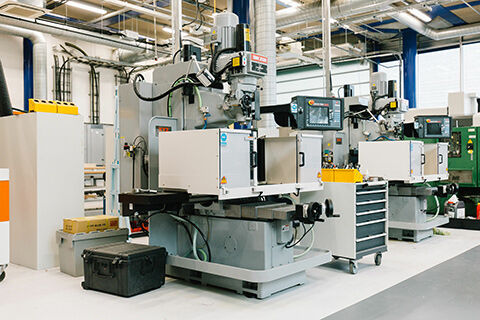
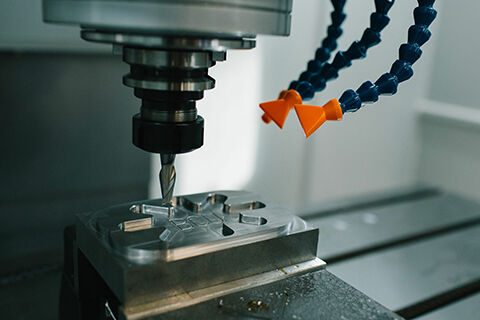
Our staff
Dr Adnan Fazal
Senior Lecturer in Mechanical Engineering
Dr Adnan Fazal is a Lecturer in Mechanical Engineering and Automotive Engineering. His current research interests include pre-stressed fibre reinforced polymers for improved strength, stiffness, impact protection, resistance to crack propagation and protection against abnormal loads. Potential applications of these smart fibre reinforced polymers...
More about AdnanLaura Leyland
Head of the College of Engineering (interim)
Laura Leyland is Interim Head of the College of Engineering and has been innovating in engineering education for over 10 years, teaching materials based modules and practical project focussed delivery with a specific interest in developing humanitarian engineering. This module delivery incorporates the Engineering for People Challenge from...
More about LauraDr Olusegun Ilori
Senior Lecturer in Mechanical Engineering
Olusegun received his PhD (Applied Thermal Fluid Sciences and Engineering Simulation) from University of Leeds after a successful viva at the prestigious Osney Thermofluids Lab (now Oxford Thermofluid Institute), University of Oxford.
More about OlusegunDr Noel Perera
Associate Professor and Director of Innovation and Enterprise
Noel graduated with the BEng (Hons) Mechanical Engineering degree in 1997 and awarded the Doctor of Philosophy (PhD) in Mechanical Engineering in 2001 both with Northumbria University.
More about NoelProfessor Michal Krzyzanowski
Professor of Engineering and Materials Science
Michal joined Birmingham City University from AGH University of Science and Technology in 2016. He is co-author of over 120 publications including one book, research monograph and several book chapters.
More about Michal